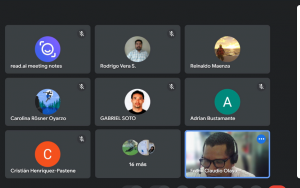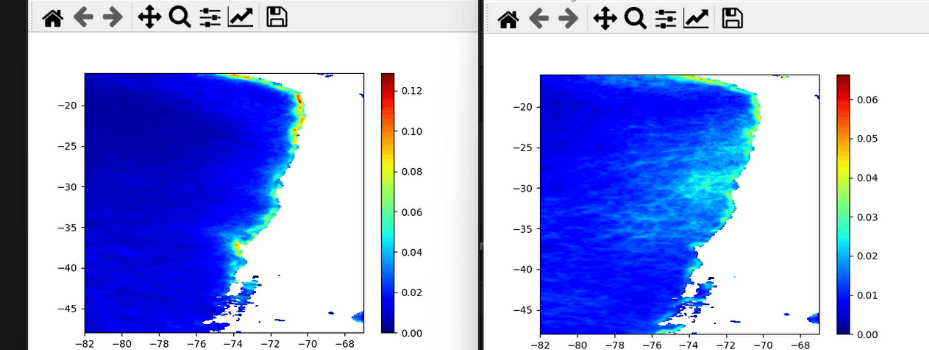Researchers from Peru, Colombia and Argentina participate in a course organized by the IFOP on the topic of oceanographic data processing
June 6th, 2024
During April and May 2024, the course “Phyton: Pre-processing of geophysical data for Hydrodynamic Models” was developed virtually, which was taught by professor Dr. Frank Oyala from the Baja Marine Science Project, Mexico.
The course is one of the activities included in the IFOP Annual High Level Specialization Training Program (PACAN) and its objective was to “Train professionals in the domain of Python programming, providing them with the necessary skills to acquire, analyze and visualize oceanographic data efficiently.”
On this occasion, mainly researchers from the Department of Oceanography and Environment of the IFOP participated, but also professionals from other departments of both the Fisheries Research Division and the Aquaculture Research Division. In addition, in an unprecedented way, a researcher from the Peruvian Sea Institute (IMARPE), a researcher from the José Benito Vives de Andráis Marine and Coastal Research Institute (INVEMAR) of Colombia, and two researchers from the National Research Institute participated in this instance. and Fisheries Development (INIDEP) of Argentina.
The participation of researchers from the institutions of Peru, Colombia and Argentina is framed in the context of the Network of Fisheries and Aquaculture Research Institutions of the Pacific Alliance (IIPA-AP Network), where it has been agreed to promote and share training instances on topics of interest to institutions.
Regarding her experience, Katherine Vásquez from IMARPE said “The development of the course in terms of the subject matter and teaching methodology used by the professor was very satisfactory and largely met my expectations, since it not only addressed the topic of data processing and generation of figures, but also showed in detail how we could download our own files, even in bulk, to be able to carry out our own climatological calculations of different variables and show the spatial distribution of these variables and their anomalies. Given my experience in Matlab programming, I am aware of the complexity of the syllabus covered, which is why I recognize and congratulate the effort and organization for the development of the course. I am sure that what I have learned will help me improve my knowledge in satellite data processing and its implementation in the generation of new products for my work area at IMARPE.”
For her part, Kelis Romaña from INVEMAR indicated “Marine science researchers have an increasingly greater challenge to understand the variability of the oceans at different spatio-temporal scales in a changing scenario. Satellite and reanalysis products (due to their coverage and development) allow us to extract variables at different scales, the processing of which is facilitated using programming languages such as R, Matlab and Python. This course gave us the basic tools to start, strengthen and/or facilitate the pre-processing of oceanographic databases in Python. It was an enjoyable course in which I felt inspired and challenged to delve deeper into this programming language, because as an Oceanographer and marine science researcher it is vitally important to have these skills, from the Institute of Marine and Coastal Research of Colombia INVEMAR, we appreciate the opportunity to have participated in this course.”
